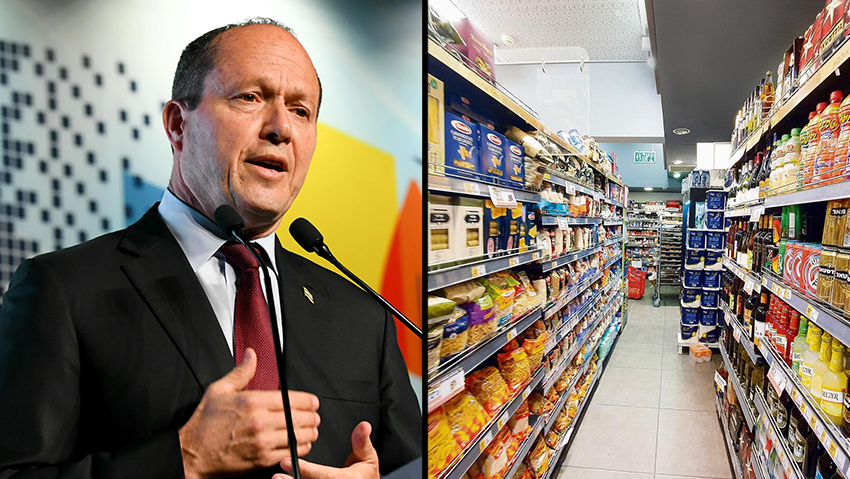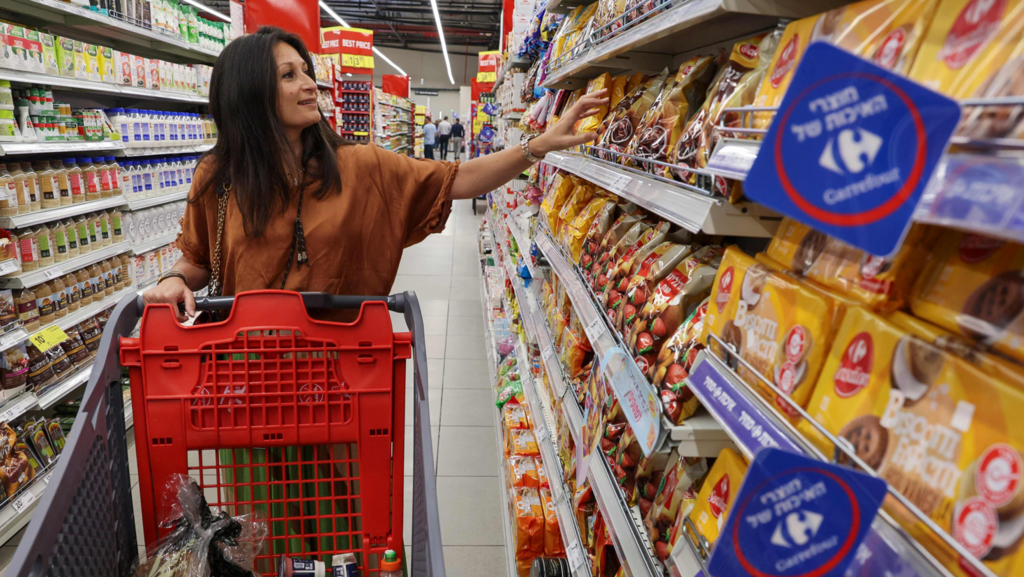Economy Minister Nir Barkat said Tuesday he intends to implement several legislative initiatives to lower prices and break monopolies in the Israeli food and toiletry sector.
More stories:
Barkat said he plans to eliminate import barriers, shift to European regulation standards and attempt to narrow monopolistic practices while exposing their profitability.
2 View gallery


Economy Minister Nir Barkat wants to lower prices and break monopolies in the Israeli food and toiletry sector
(Photo: Yariv Katz, Nachum Segal)
"We have submitted the law to enhance competitiveness in the food and toiletry sector," Barkat told reporters. "The market suffers from problems of excessive centralization, and the lack of competition results in Israelis paying much more than people in other countries."
"For years, a small group of monopolies has gained at the expense of the consumer, and that ends now. A market without competition is a flawed market. We have embarked on a dramatic and historic process that will prevent this situation from persisting. We are committed to eradicating public exploitation and enabling more and more competition. I have heard that the monopolies are conducting a campaign worth millions of shekels against me. I am not afraid of anyone. My commitment is solely to the citizens of Israel," he said.
The first regulation introduced by Barkat is the Free Import Law from Europe. "I want to reach 50% import from Europe by canceling Israeli regulations and standards, except for exceptional criteria," he said.
"The law opens the gates for tens of thousands of products sold in Europe and bypasses unnecessary Israeli testing and regulation. Any product that meets European standards will enter the country directly without unnecessary inspections and paperwork at the port. What is good for hundreds of millions worldwide is also good for Israel. The majority of regulations and directives in Europe will be fully adopted. Why did we choose European standards? Because Europe is the major trading partner of the U.S., China and Asia. Therefore, all markets align themselves with Europe," he explained.
In the next stage, Barakat said, "Israel should rely entirely on import according to European legislation. Not a change in Israeli standards, as attempted in the past, but a complete adoption of European standards. This does not eliminate Israeli standards. Those who want to sell in the country according to Israeli standards can continue to do so. The Standards Institution of Israel will also continue to operate."
According to the minister, those who import substandard products into the country risk penalties. The problem is that the Economy Ministry has only 30 inspectors who examine products with a budget of approximately 30 million shekels ($8.2 million). In addition, the ministry is initiating a collaboration process with the European Union in which Israel will be part of the monitoring database in Europe. The goal is to pass legislation in the winter session.
"I believe people will choose European directives over Israeli ones," Barkat said. "Compared to OECD countries and Asia, we are more expensive. Bureaucracy adds about 10% to the cost of imported products in Israel. These are problems that the Free Import Law addresses."
The second law presented by Barkat aims to dismantle monopolies through structural changes. "The law will limit the ability of large suppliers to distribute the products of small suppliers. The small suppliers will be able to use the 'wheels' of the large ones but not trade with them as a package. In other words, the large suppliers will not be able to promote small suppliers against the chains at the expense of other small suppliers. Restrictions on mergers will also continue. There are a small number of manufacturers and importers who hold a large market share. A draft law on this matter has been published and, within a few weeks, it will be presented to the Ministerial Committee on Legislation," he said.
According to the minister, another law is the ban on parallel imports. Last week, the law was approved, imposing fines of up to 100 million shekels ($27.2 million) on those who prevent parallel imports. The question arises as to what constitutes prevention, as official importers sometimes complain about the legality of such imports, such as the absence of an import label.
The fourth law will require monopolies to disclose their sales figures to the public. This applies to the 17 major players. When asked if companies will disclose their profitability and how it will help, Barkat said, "I want to receive profitability data in order to publish it to the public and to formulate a policy that will make an impact."


